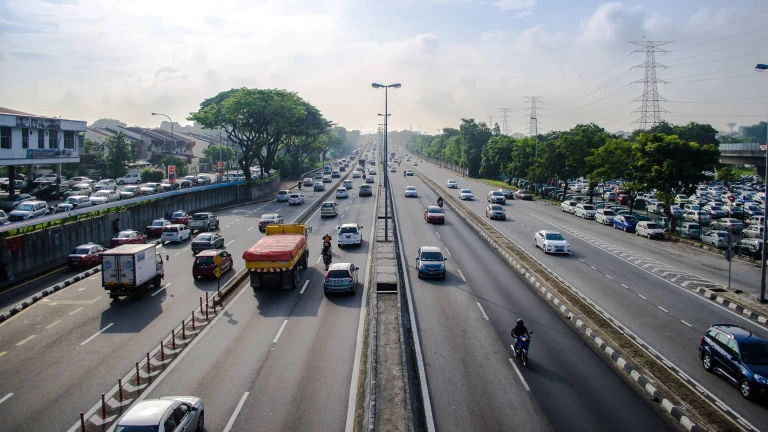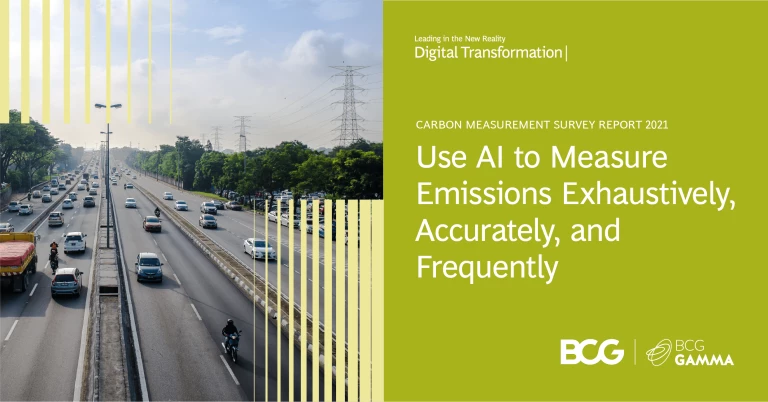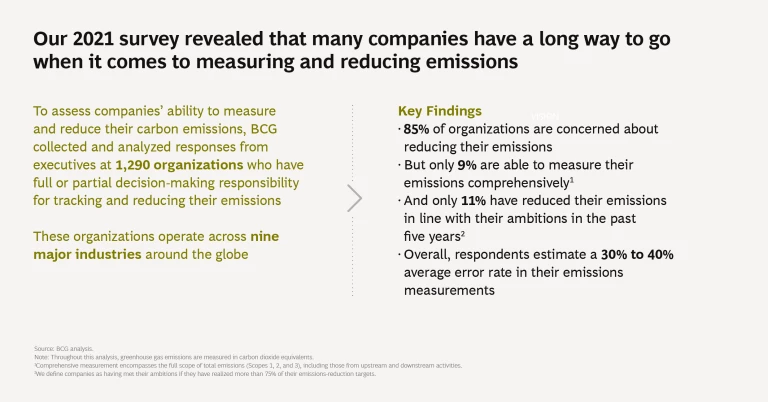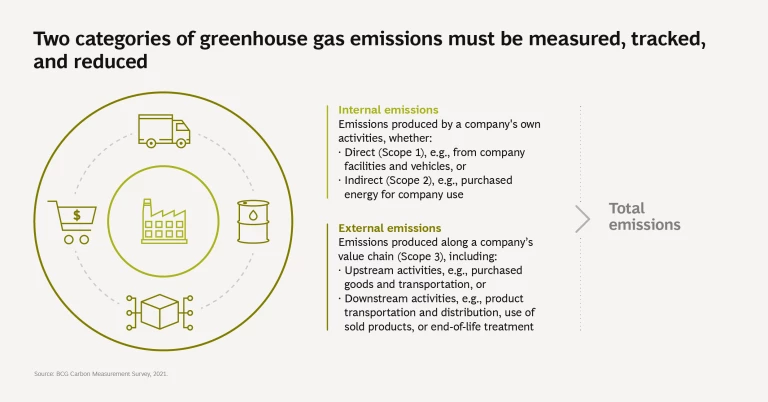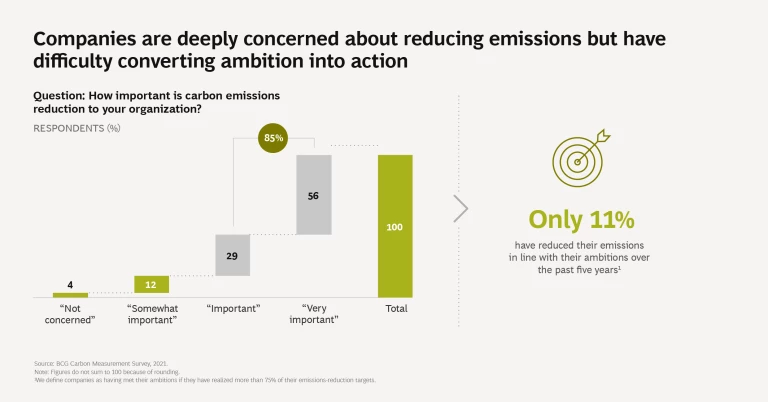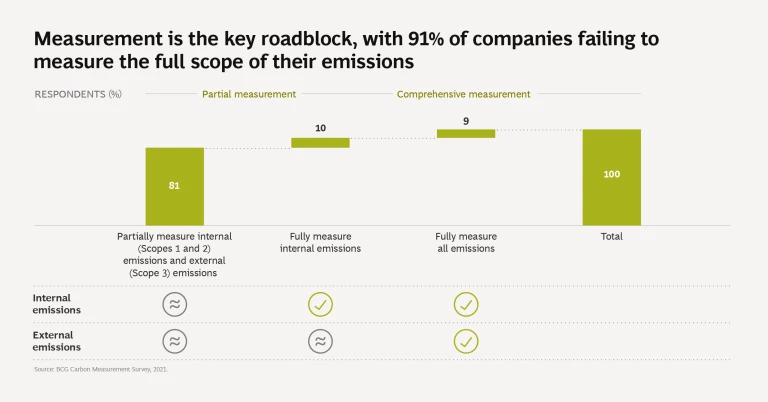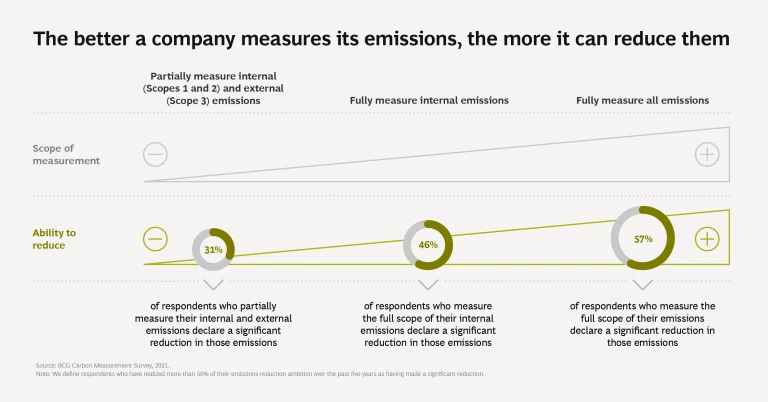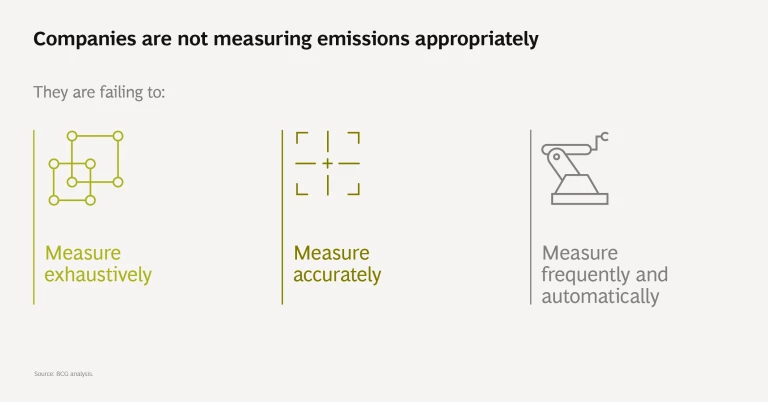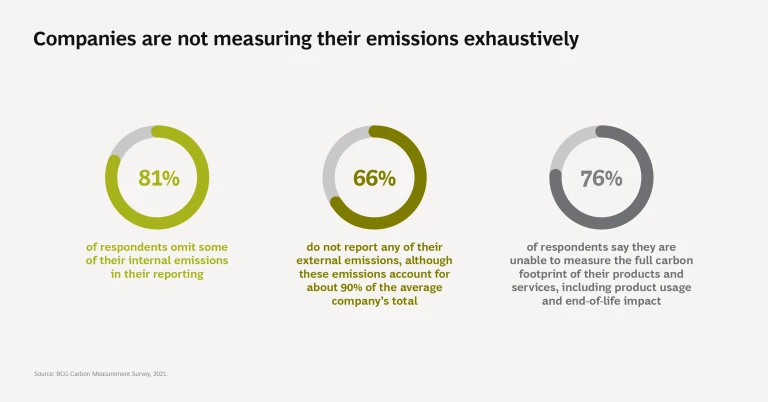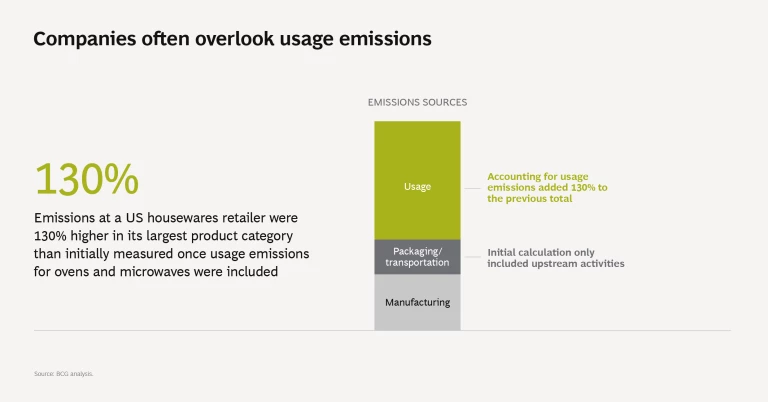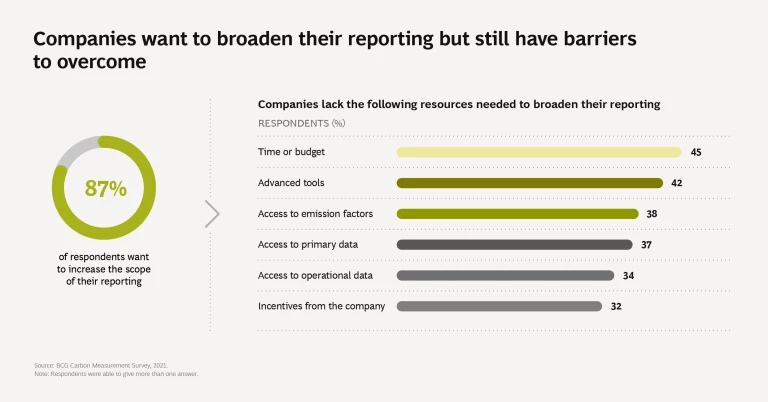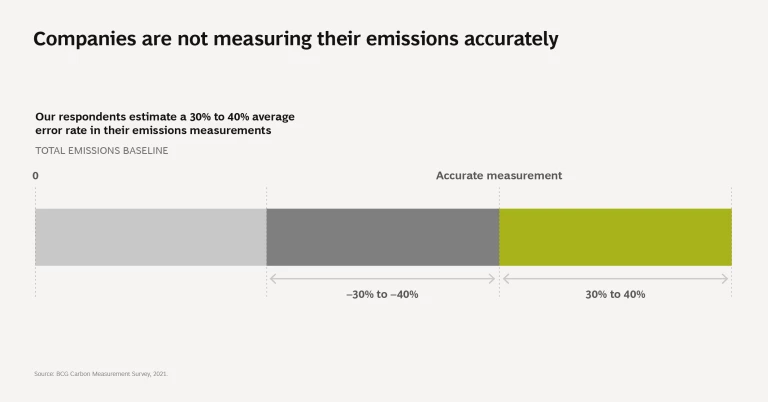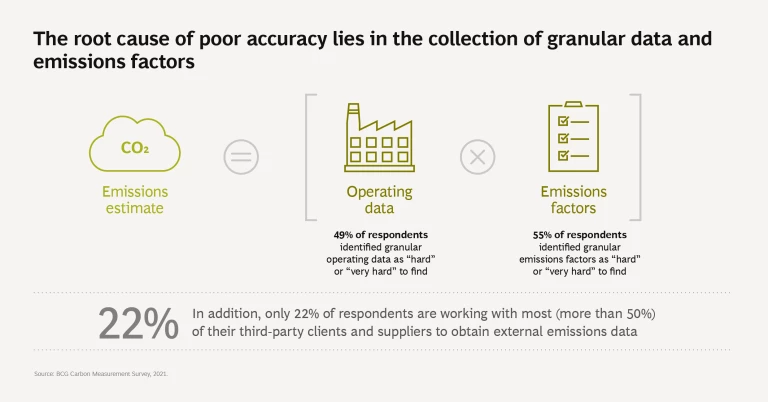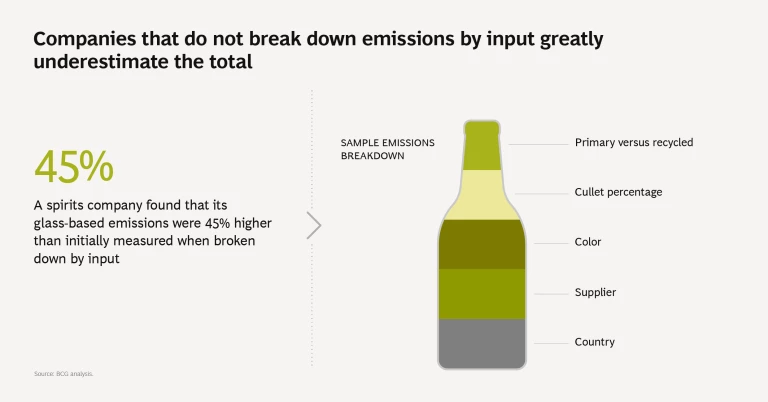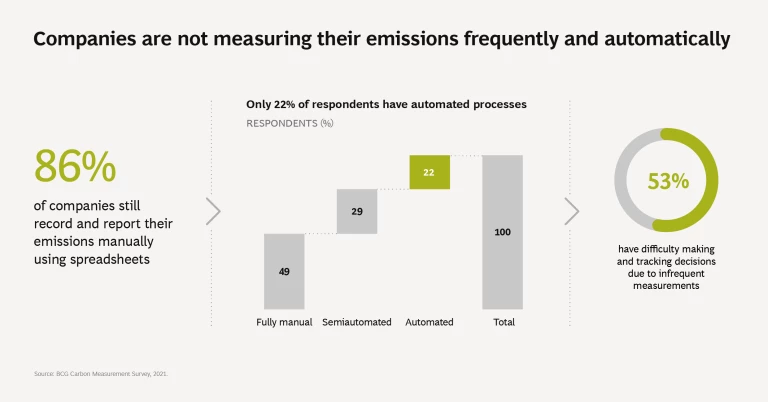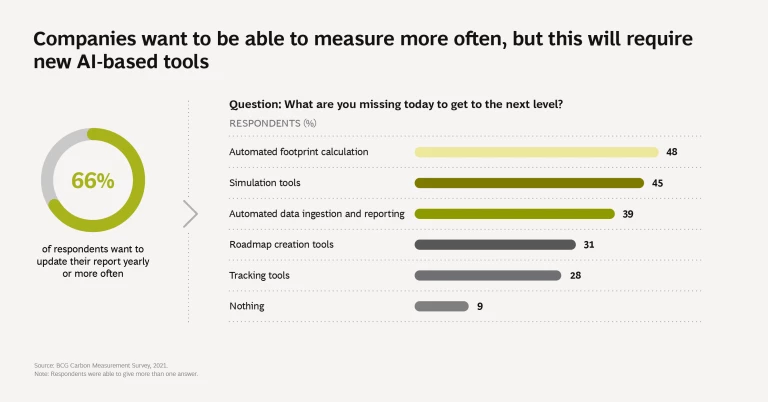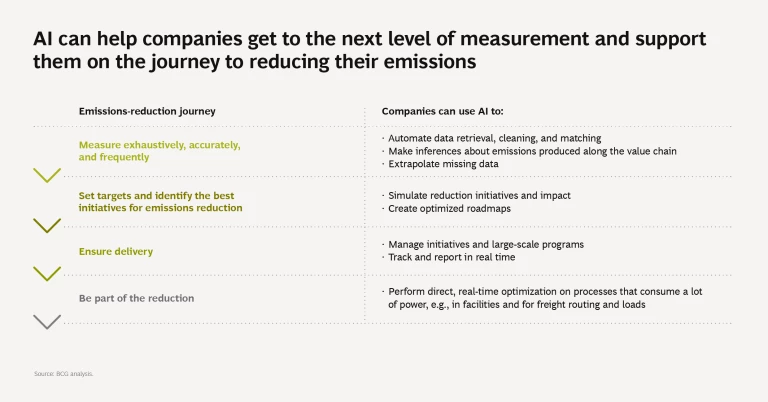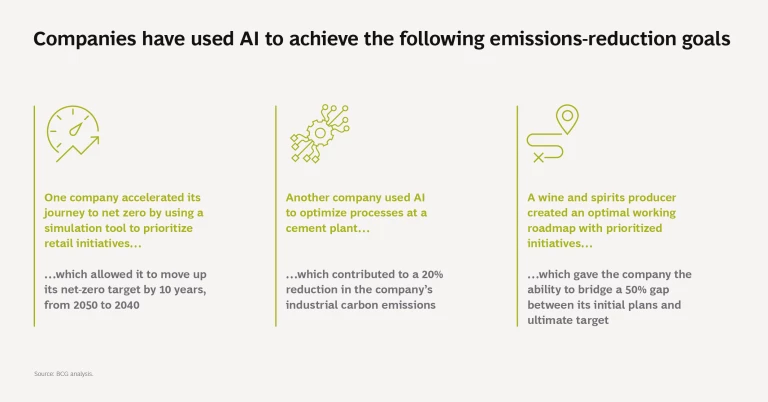Despite good intentions, companies say they are struggling to cut their emissions in line with targets. Their inability to measure appropriately is the leading roadblock.
According to our new global survey, 85% of organizations are concerned about reducing their greenhouse gas emissions, and 96% have set targets for reducing emissions in at least one scope. (See “Our Methodology.”) Yet only 11% have cut their emissions in line with their ambitions over the past five years.
Our Methodology
Emissions include those related to an organization’s activities (direct, or Scope 1, emissions), such as those produced by a company’s facilities or vehicles, or from energy purchased for the company’s use (indirect, or Scope 2, emissions). They are referred to as internal emissions.
Emissions also include those related to an organizations’ value chain (Scope 3), whether upstream, such as purchased goods, or downstream, such as the transportation and distribution of the company’s products or the use and end-of-life treatment of those products. They are referred to as external emissions.
What is standing in their way?
Respondents say their inability to measure accurately and exhaustively is the leading roadblock. Just 9% measure their total emissions comprehensively, while 81% confess to omitting some of their internal (Scopes 1 and 2) emissions. Meanwhile, 66% of the organizations we surveyed do not report any of their external (Scope 3) emissions. Perhaps more surprising is that our respondents estimate an average error rate of 30% to 40% in their emissions measurements. If companies don’t have complete and high-quality emissions baselines, how can they analyze their current footprints, designate appropriate targets, design the right initiatives, and, ultimately, track the results?
Companies that calculate only the emissions from their own production processes may greatly underestimate total emissions—including those generated by the production and delivery of inputs and product packaging, as well as customer use. For example, one US-based housewares retailer initially excluded usage emissions from the ovens and microwaves it sold. Including them increased the retailer’s reported emissions in that product category, the company’s largest, by 130%.
If organizations are to halve their emissions by 2030 in accordance with the Paris Agreement—and eventually achieve net zero—they must be able to measure exhaustively, accurately, and frequently. Without understanding the full extent and composition of their internal and external emissions, they cannot know where to focus their reduction efforts.
New AI-supported tools can help companies meet this challenge by taking their measurement and tracking capabilities to the next level. Businesses can leverage these tools to automatically ingest and report data, calculate a carbon footprint, run simulations, set targets, manage a global portfolio of abatement initiatives, and more. Our experience suggests that AI can directly enable the reduction of companies’ emissions by as much as 40% through identifying the best initiatives, tracking results, and optimizing operations.
The authors thank Tiphaine Ramanantsoa, Anouk Placet, François Candelon, Romain de Laubier, and Michel Frédeau for their contributions to this publication.
